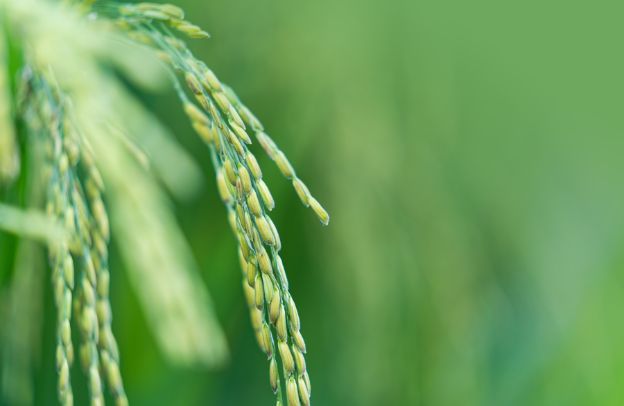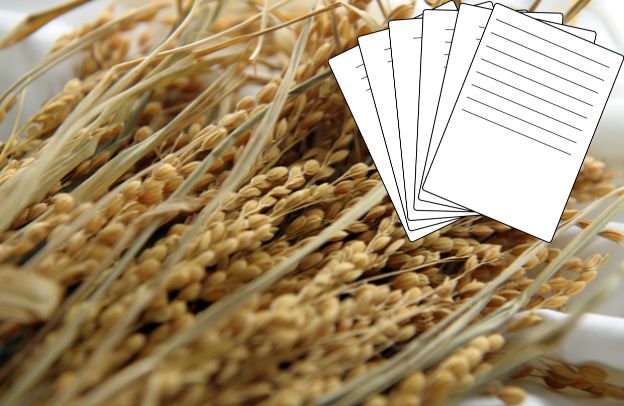Rice and the Future: African Diaspora and the Huge Potential of Agribusiness

Imagine the transformation you could spark by tapping into Africa’s immense agricultural potential! For African diaspora entrepreneurs, agribusiness goes far beyond farming—it’s about feeding a rapidly growing population, creating meaningful jobs, and driving economic growth across the continent. With global food demand rising faster than ever, now is the perfect time to explore Africa’s untapped opportunities and be a part of building a sustainable future.
Want to learn more about storytelling? Start by downloading the first chapter of The Storytelling Mastery.
Why Rice?
Rice is more than just a staple food it’s a lifeline for billions worldwide. In Africa, especially in Nigeria, rice is more than a meal; it is a source of livelihood for millions of farmers and a cornerstone for food security. Yet, many of these farmers face tough challenges, including outdated techniques, environmental pressures, and limited access to advanced technologies.
This is where African diaspora entrepreneurs can step in, bridging gaps, offering innovative solutions, and creating lasting change.
See also: Rice: The Nutritional Powerhouse for a Growing Population
The Challenge
By 2050, the world’s population is projected to soar to 9.7 billion, placing unprecedented pressure on global food production systems. In Africa, the challenge is even more critical, with a rapidly growing population and a food demand that current agricultural ù cannot sustain.
Here’s the reality:
- Small-scale farmers, who form the backbone of Africa’s food production, often operate without access to essential resources such as modern tools, financing, and training.
- Environmental challenges loom large without adopting advanced, sustainable technologies, expanding rice cultivation could lead to deforestation, soil degradation, and water shortages.
- Global partnerships are vital. Africa’s wealth of local knowledge must merge with modern, sustainable agricultural practices to ensure a balance between increasing yields and protecting the environment.
The future of food security in Africa and beyond depends on innovation, collaboration, and a commitment to empowering farmers while safeguarding the planet. Now is the time for decisive action.
See also Transforming Rice Production in Africa: The Adoption of Technology
Why This Matters to You
As an African diaspora entrepreneur, your role isn’t just about investments. It is about using your global experience, connections, and passion for impact to change lives through agribusiness. By partnering with local farmers, you bring in new knowledge, introduce sustainable practices, and make agribusiness a profitable venture that lifts communities.
Where to Start: Collaborate and Innovate.
Through collaboration, you can bridge the gap between African agriculture and global markets, providing a sustainable future for both.
Africa is poised to become a leading force in global agriculture, driven by transformative changes and strategic initiatives. A recent article by the World Economic Forum, “5 Ways That Free Trade Can Boost Sustainable Agriculture in Africa,” highlights the continent’s immense potential and the pivotal role of the African Continental Free Trade Area (AfCFTA) in realizing it.
The AfCFTA, which aims to remove trade barriers and increase intra-African trade, is set to create a unified market encompassing 1.7 billion people with a projected consumer and business spending capacity of $6.7 trillion by 2030. This landmark agreement is more than an economic boost; it is a gateway to sustainable agricultural growth and development across the region.
Why the AfCFTA Matters for Agriculture
- Market Expansion: The creation of a single market allows African farmers and agribusinesses to access broader consumer bases, reducing dependency on fragmented local markets.
- Enhanced Trade Efficiency: Eliminating tariffs and easing cross-border logistics facilitates the movement of agricultural goods, ensuring faster delivery and reduced costs.
- Investment Opportunities: A unified market attracts both domestic and international investments, spurring innovations in sustainable farming practices and agritech solutions.
- Economic Empowerment: By prioritizing agriculture, the AfCFTA can uplift millions of smallholder farmers, creating jobs and driving rural development.
- Food Security: With streamlined trade, countries can share surplus production and mitigate food shortages, promoting resilience in the face of climate challenges.
Africa’s agricultural sector stands at a critical juncture. With the AfCFTA as a catalyst, the continent can overcome traditional barriers, foster sustainability, and unlock its potential as a global agricultural powerhouse. The future is within reach—it’s time to cultivate it.
Check this out: Finding Home Through Entrepreneurship: The Journey of Ezekiel Geofrey Uzo and the Power of African Diaspora Collaboration
Here’s how to dive in:
Want to revolutionize agriculture in Africa?
The key lies in innovation, sustainability, and collaboration. Here’s how to take bold steps toward transforming farming practices and unlocking the continent’s potential:
- Invest in Tech and Sustainability: Precision agriculture and drones, for instance, allow farmers to monitor crops, improve yields, and conserve resources.
- Promote Sustainable Farming: Integrated pest management and agroforestry practices reduce environmental impact while boosting yields.
- Leverage Data: Use real-time data to make smarter farming decisions, from pest control to irrigation, ensuring every inch of land is productive.
- Collaborate with Local Farmers: Support farmers to adopt innovations and help scale their operations to meet international standards.
Did you know?
In 2021, African diaspora contributions through remittances reached a staggering $50 billion, underscoring their pivotal role in driving sustainable development across the continent. Much of this funding has been channeled into vital sectors like healthcare, education, and infrastructure, creating ripple effects that extend to agribusiness.
These financial injections have not only provided capital but have also catalyzed growth in agribusiness by empowering local farmers and entrepreneurs. When paired with training in critical areas like business skills, financial management, and digital marketing, these remittances have the potential to transform agribusinesses into globally competitive enterprises.
Imagine a farmer who not only grows crops but also understands market trends, crafts a compelling brand story, and markets their produce directly to consumers worldwide. The combination of capital and capacity-building unlocks new opportunities, enabling agribusinesses to scale, attract investors, and tap into both local and international markets.
This partnership between the diaspora and local stakeholders is reshaping Africa’s agricultural landscape, paving the way for a more resilient and prosperous future.
The Key to Agribusiness Success: Continuous Learning
Agribusiness is a complex field, and staying updated is crucial. From tech advancements to new farming practices, continuous learning is your competitive edge. The AClasses Academy provides courses on:
- Agribusiness strategies
- Digital marketing for small farmers
- Sustainable farming practices
- Business management essentials
In an article by Agripreneurship Alliance, titled ”4 Digital Marketing Strategies for Agribusinesses” emphasis was made on the importance of securing a sustainable future for Africa. Agribusinesses are at the heart of this mission, serving as critical drivers of economic development across the continent.
According to The Conversation, agribusinesses have a distinct advantage: access to diverse and ready local markets. These markets provide a less competitive space for growth, enabling farming operations to scale sustainably before expanding to international markets. This dynamic positions agribusiness as a powerful engine for economic transformation.
Moreover, Africa’s youth are uniquely equipped to revolutionize the sector. Armed with self-awareness in business and a knack for innovation, they are enhancing manufacturing and retail processes to boost productivity and efficiency. Their active involvement is not just improving agribusiness but also laying the groundwork for a more resilient agricultural sector that can thrive in both local and global markets.
By leveraging these strengths, Africa’s agribusinesses can drive long-term economic and social change while ensuring food security and sustainability.
By investing in your knowledge and that of your partners, you ensure your business is not only profitable but sustainable. This commitment to growth and learning keeps you ahead, and prepared to adapt to market changes and environmental shifts.
See also The Continuous Learning Edge: How Creative Entrepreneurs Can Thrive in a Rapidly Evolving Market
Final Thoughts: Shaping Africa’s Agribusiness Future, Together
The African diaspora holds the key to unlocking Africa’s vast agricultural potential. By introducing modern practices, fostering meaningful collaborations, and investing in homegrown initiatives, we have the power to reshape agribusiness and create a lasting legacy. Together, we can scale operations, boost productivity, and transform Africa into a global leader in sustainable agriculture.
But agribusiness is about more than just profit. It’s about nurturing resilient food systems, empowering local farmers, and creating generational impact. It’s a call to uplift communities, strengthen economies, and secure a sustainable food future for Africa.
Are you ready to be part of this transformation? Join hands with your African brothers and sisters in building a brighter, greener future. Together, we can turn Africa’s agricultural promise into a reality, one innovative step, one thriving farm, and one shared dream at a time.
Want to learn more about storytelling? Start by downloading the first chapter of The Storytelling Mastery.





